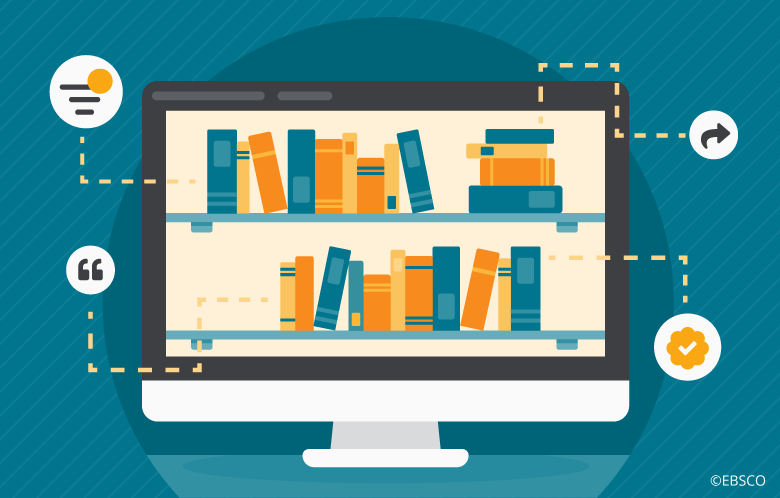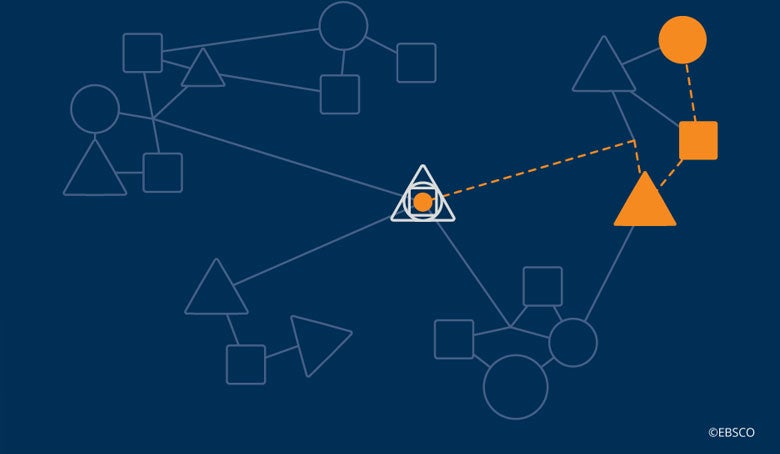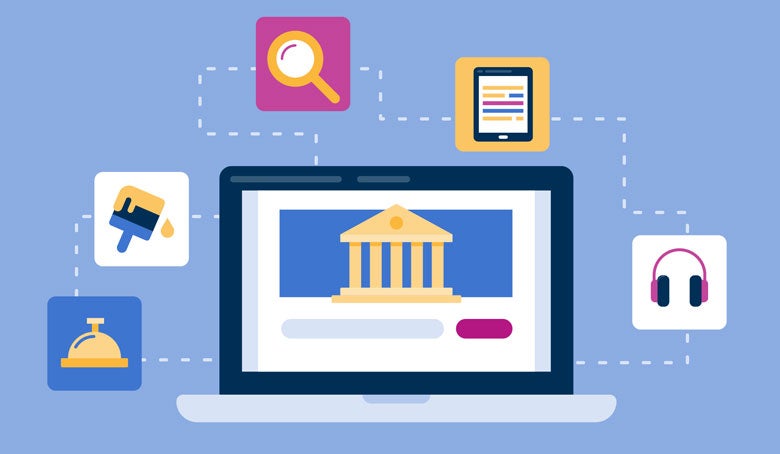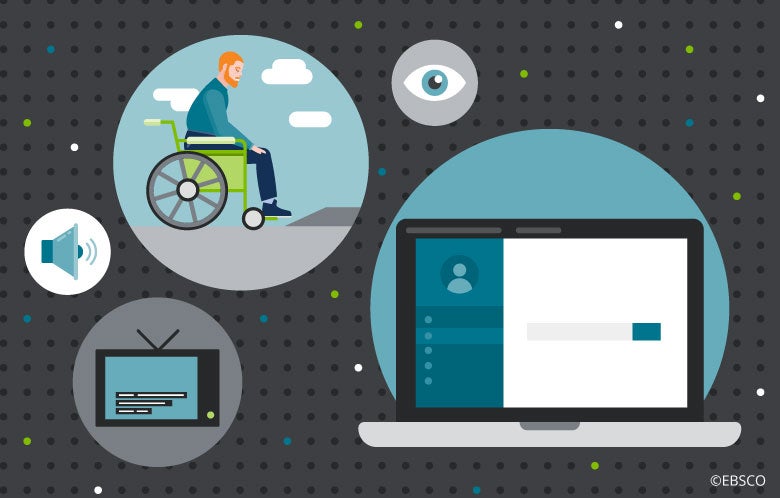For years, EBSCO Discovery Service™ (or EDS) has been the premiere single search tool for accessing everything in the library — from e-books, to magazines, to full-text articles. But now, EDS is even better as it delivers a new search experience, with a redesigned user interface (UI), that enhances how library patrons access, search, choose, and use public library resources. This new interface combines elements that patrons encounter on sites such as Netflix™, Amazon™, Spotify™ or Google™ with the services of a library website. As a result, the new EDS features personalized dashboards, sharing options and recommendation capabilities.
With EDS, patrons can now access their public library wherever they are, whenever — on any device. Using SAML-compliant identity solutions like Microsoft ADFS, Ping, or Okta, EDS supports privacy-protected single-sign on. Should patrons find links to material on other platforms, OpenAthens supplies personalized authentication connections, while simultaneously granting usage data and precise access permissions control to library managers.
Patrons researching in Google Scholar™ can connect to EBSCOhost® and retrieve full text results thanks to Google CASA™ and Universal CASA. With LTI (Learning Tools Interoperability) 1.3 compliance, if a patron is using a learning management system such as Canvas™, Blackboard™, or Moodle™, they can instantly access any assigned content in EBSCO since their LMS has already authenticated them.
In addition to ensuring easy access, EBSCO also focuses on accessibility. From the very start of software production, EBSCO tests for accessibility in partnership with The Carroll Center for the Blind, in Newton, Massachusetts. This accessibility-first approach makes the interface better for ALL patrons. Furthermore, EBSCO has been named a top e-book platform provider by the ASPIREverified Accessibility Audit, scoring 100 percent, and is advancing toward WCAG 2.1 AA compliance.
EDS also helps patrons enhance their information literacy skills. As patrons execute their searches, they are guided toward improving their search terms and finding items they may have overlooked. Thus, inexperienced researchers can not only surface the materials they need, but also develop a greater appreciation for the library resources.
Essentially, EDS is a discovery service and a learning environment. The “brain” of EDS is the Knowledge Graph. It is thanks to the Knowledge Graph that library patrons can access expert information even if they are not expert researchers. The Knowledge Graph maps new datasets that incorporate natural language, extensive subject vocabularies and a vast array of synonyms and concepts in more than 280 languages and dialects. This is beneficial across multiple dimensions as it not only enables patrons to enter search terms in their native languages, but also enhances relevance and search rankings for EDS and EBSCOhost®.
The Knowledge Graph can also help find connections between subjects by using the EDS Concept Map, a visual representation of related subjects and concepts laid out in a hub-and-spoke pattern.
Essentially, EDS is a discovery service and a learning environment.
Essentially, EDS is a discovery service and a learning environment.
When the patron enters a search, the Knowledge Graph provides them multiple possible options in a drop-down menu so as to specify what they are looking for. If the patron is looking for “arm,” EDS presents an array of choices, including a limb, a weapon, or a branch of an organization. This is equitable search — meaning, there is no “correct” word for a query. Rather, the patron uses their own words and is still steered toward expert results.
A search for “England,” for example, shows a map of England at the hub, with an array of spokes emanating from it, each linking to an England-related concept, such as “United Kingdom,” “London,” or “History of England.” If the patron is interested in any of these, they can initiate a new search with an improved query. This approach fosters information literacy, as it helps patrons sharpen their searches.
The new EDS user experience features a modern results list that helps patrons find the highest quality content for their area of inquiry. There’s also a “like” function for tagging items and saving them for later. Patrons can cite, add to a project, share references and download items directly from the results list, all without having to open the items.
In addition, patrons can choose their preferred citation format, copy the citations, export them to tools such as Zotero™ or NoodleTools™, or email them. They can share to Google Drive™, Google Classroom™, or create a link to share on other platforms.
Patrons can also click to open the full text of an article in PDF or HTML formats. With the new PDF viewer, the user can cite, share, and add to a project, just like in the results list. Within the viewer, patrons can also see how many copies are available to the library, and whether the title is currently in use.
EDS also has a new e-book viewer with a fully accessible e-book viewing experience for EPUB (HTML) and PDF e-books. The new viewer lets patrons cite, share, and download whole e-books, or select individual chapters from the table of contents. Patrons can also search for terms directly in the e-book viewer.
For libraries with Full Text Finder™, a new Publication Finder™ UI offers browsing by alphabet, database, and hierarchical subject.
EBSCO is rolling out the new EDS user experience to customers based on their readiness. Existing customers will receive simultaneous access to the old and new versions in order to become familiar with the new features and provide feedback. Since the new EDS user experience will be populated from existing profile configurations, there is NO migration — just a smooth transition. Current clients can “go live” with the new interface when they feel comfortable, while new customers will start with the new UI.
The evolution of the EDS user experience continues EBSCO’s tradition of delivering precise, meaningful results across billions of records to millions of patrons. By combining the excellence of EBSCO’s search technology with a new interface, patrons can take even greater advantage of all the library has to offer.
Learn more about EDS’s enhancements and guiding patrons on their journey.



